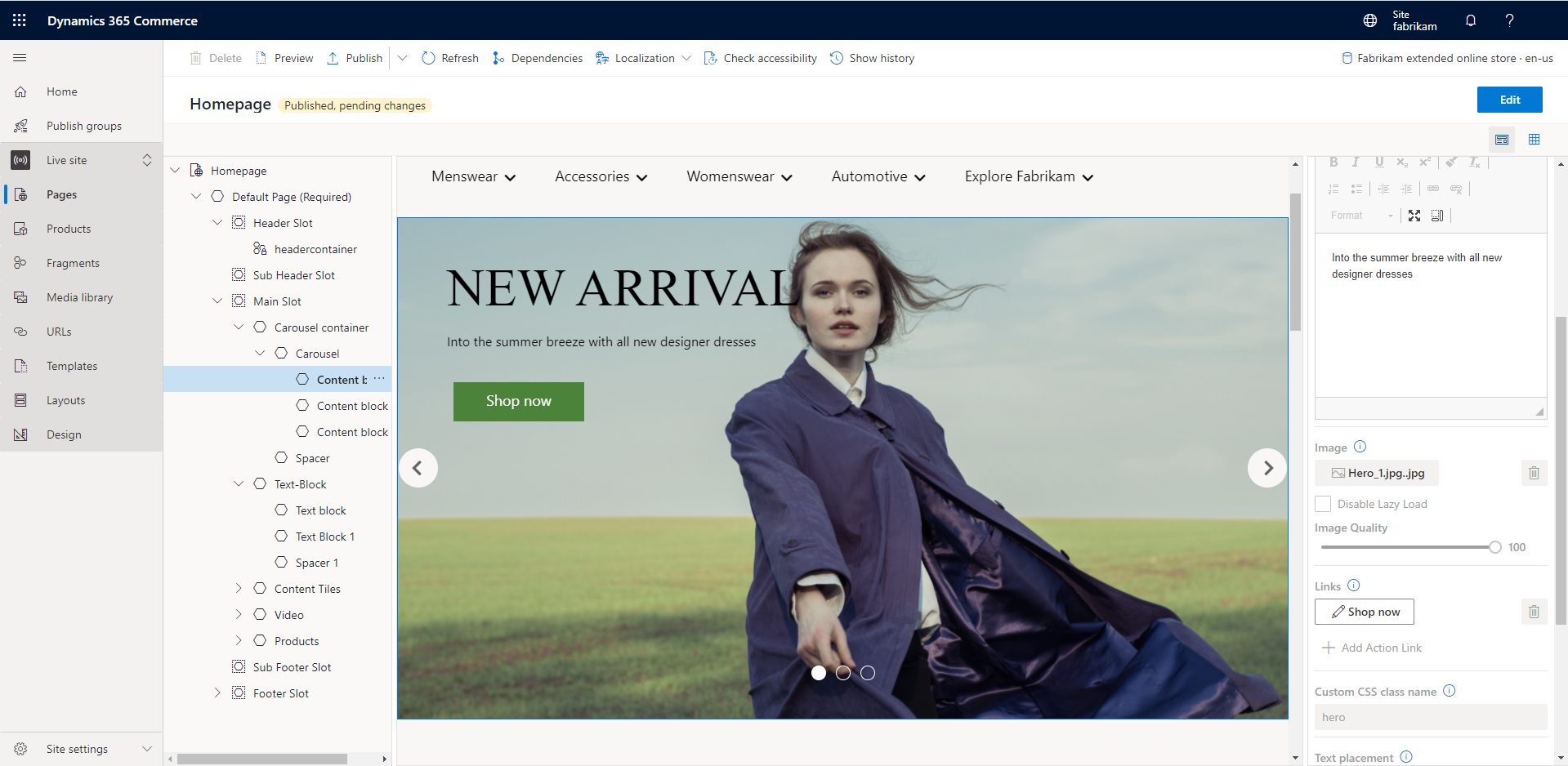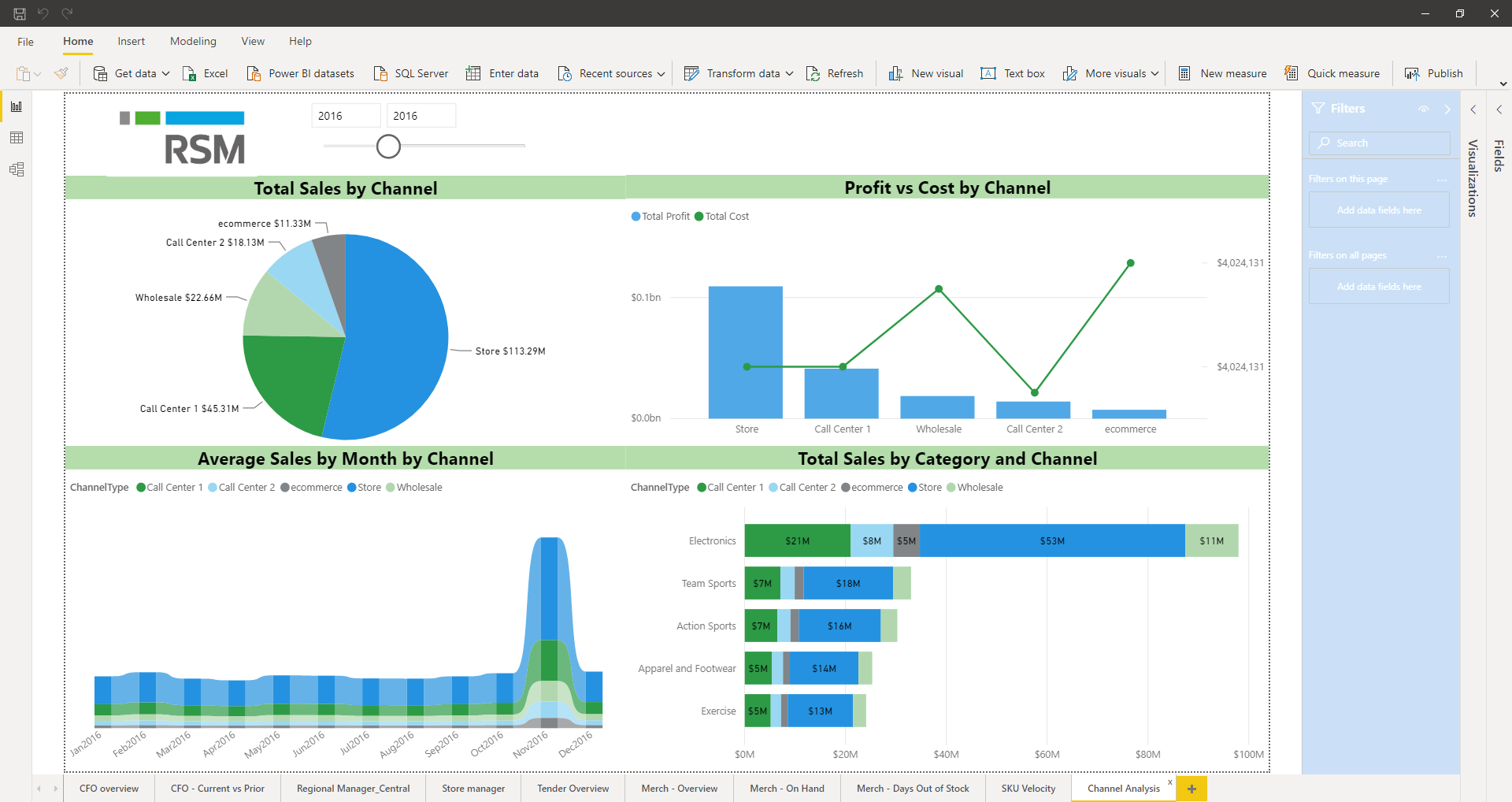Since before Microsoft’s e-commerce platform became generally available RSM’s team has been leading the way in developing with Ste Michelle Winery Estates, most recently launching Elicit.wine project website on the Dynamics 365 Commerce platform. We’ve gone through multiple updates and now have more than 17 live sites under our belt. Leaning on this experience here is our take on the top five features of the D365 e-commerce platform and one area that’s missing!
Top 5 Features
Scalable
D365 e-commerce is built on the retail infrastructure and takes advantage of architecture like Retail Cloud Scale Unit (RCSU). Unlike multi-tenant e-commerce offerings, this gives a lot more control over infrastructure and allows for proactive planning around retail seasonality, development needs, and any other considerations imposed on the digital solution by the business, both from a purely digital and omni-channel perspective. With Microsoft Azure Cloud as the foundation for the platform, it goes without saying that the platform can scale across the globe with multi-region support that addresses compliance and redundancy no matter business requirements.
Easy to use

Routine site maintenance should not require advanced JavaScript skills, nor need development expertise to make text and styling changes. In most organizations, these tasks are part of the scope of responsibilities of the marketing team along with campaign management, promotions, digital asset management. D365 Commerce provides a toolset that provides a single pane of glass for multi-site management, and tools to collaboratively edit and publish updates without writing a single line of code. For power users, there is easy access to behind-the-scenes HTML and CSS, but most tasks can be completed through configuration rather than customizations. Swapping out the theme of the site or an individual page takes only a few clicks!
Easy to extend and customize
For organizations that need complete control and want to deliver a one of a kind user experience, or have complex business requirements and non-standard customer journeys through the shopping experience the Dynamics 365 Commerce platform offers unlimited extensibility and ways to customize the experience. Leveraging React.JS and Bootstrap along with modern best practices around development and deployment pipelines it’s a snap to build on top of the platform. Microsoft provides a large set of reusable modules out of the box that can be extended and RSM has developed our own set of modules that provide a great starting point for a new site. By doing so, clients on the platform are able to save time and money on development.
Power of the platform

Talking about how the commerce platform is integrated into the ERP is a bit misleading since no integration is needed – it is natively part of the digital retail stack and can be best described as a channel along with Call Center and the point of sale. With the common item master managed from Dynamics Headquarters, ability to share data with Dynamics CRM and Marketing and PowerBI for reporting, the solution can scale with the business, no matter how audacious the roadmap might be.
Omni-channel capable out of the box
With e-commerce set up as a retail channel in Dynamics Commerce, all data is natively shared with the other channels, effectively giving us a 360-degree view of the customer between Call Center, brick and mortar retail / POS, and digital. 2020’s digital acceleration puts a new emphasis on business able to offer BOPIS / BORIS capability through their digital platform, in addition to concepts like curbside pickup and sharing personalization insights across channels. Starting with the platform that’s built with these scenarios as a core requirement is key in planning for success.
What’s missing?
When the platform came out almost a year ago the emphasis was very much on the B2C/direct to consumer customer segment, neglecting the entire B2B market. Businesses selling to other businesses need the ability to provide quick ordering, sales invoice and PO support, give sales team members features they desire, along with many more core B2B scenarios. Competitors like Salesforce have delivered B2B functionality through acquisition, which presents a number of challenges, especially for businesses needing B2B and B2C now having to deal with disparate systems. Keeping an eye on the future for the Dynamics 365 Commerce, if/when the platform can extend into the B2B segment will have a true enterprise-grade end to end integrated solution.

 RSMUS.com
RSMUS.com